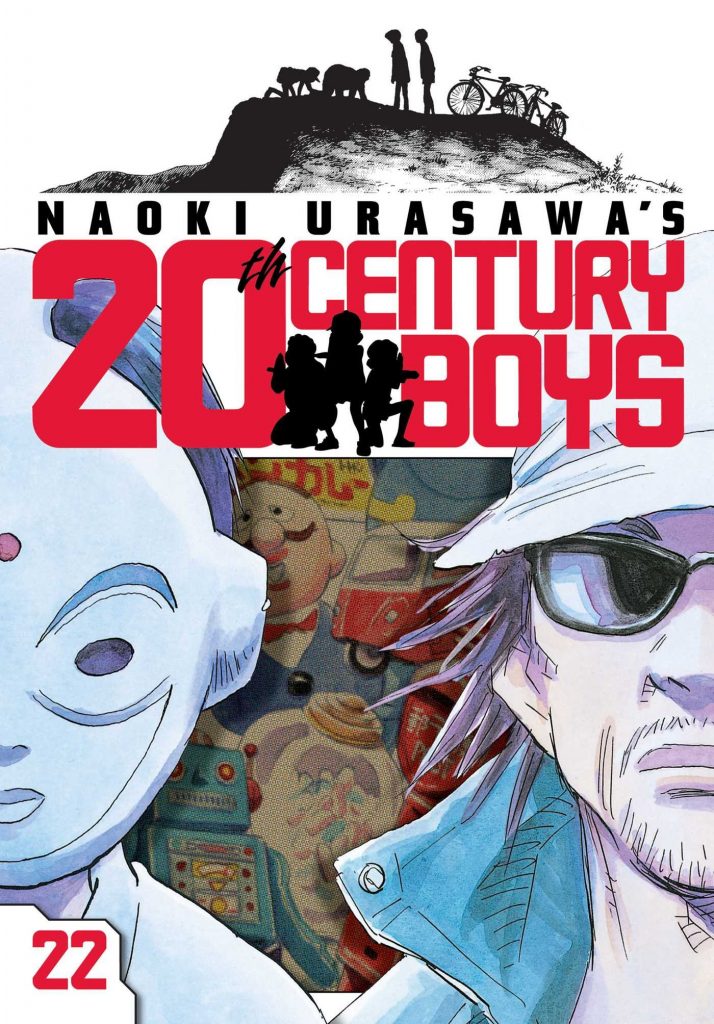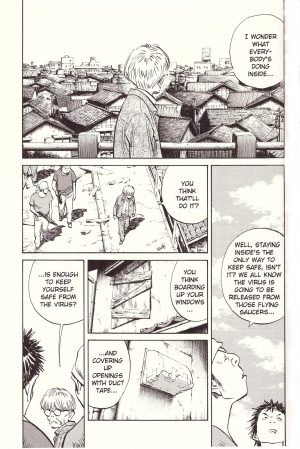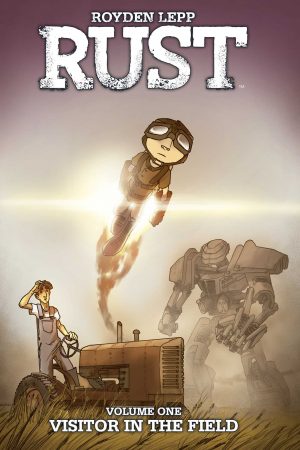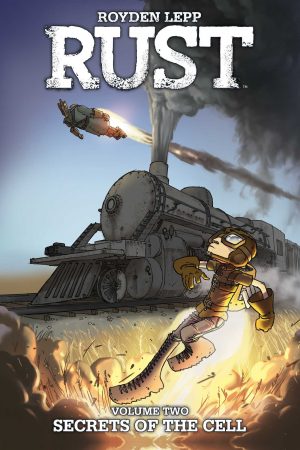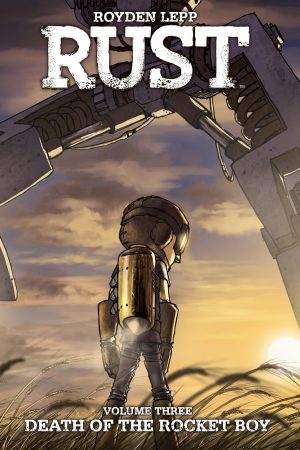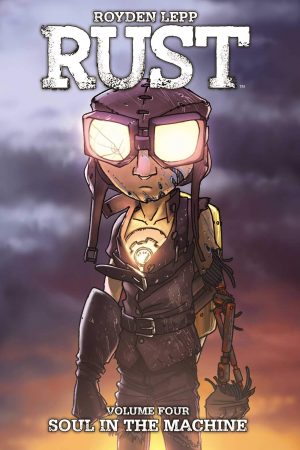Review by Ian Keogh
Spoilers in review
As he’s managed so often in the past, Naoki Urasawa ended Arrival of the Space Aliens with a bombshell. Friend came clean in a live broadcast, revealing how events had been manipulated and how he was now going to destroy the world by releasing an even deadlier virus than three years previously.
Urasawa opens The Beginning of Justice with the reaction of our leading characters, and Tokyo in general before shifting into one of his prevailing themes: the power of music, and by extension art, to inspire. It cleverly taps into a number of cultural myths, such as the party at the end of the world, the greatest show on Earth, and more obliquely, duck and cover. Running parallel to that are the desperate attempts of our main cast, gradually coming ever closer together, to counter Friend’s appalling plans. Something so impressive, above and beyond the usual levels, is how Urasawa still manages to drop back in on folk seen earlier in 20th Century Boys and conclude their stories. Who’d have thought, for instance, that we’d see the two kids from Cross-Counter again, or the Tokyo police chief? His presence is a reminder of how few leading characters have actually died over the course of the series, and there’s a cracking revelation about one who did.
The deeper we head into the volume, the greater the feeling of time running out becomes. It is for the residents of Tokyo, but also for readers who will increasingly come to believe there’s no way Urasawa can satisfyingly complete his epic in the pages remaining. The shocker is that he doesn’t. The couple of volumes of 21st Century Boys aren’t any form of continuation, or catch-ups with old friends, they’re the concluding parts of the main story. So what we have here is a succession of chapters prioritising forms of desperation, one of elation, but the ending is really strange. What the hell is going on? We’ll find out in 21st Century Boys 01: Freind’s Death.
If your expectation was that the series ended here, and there’s some form of disappointment that it didn’t, it leaves two ways of looking at things. The first is to cry foul, and the second is to let it trickle in that what it actually means is that there’s two more volumes of this fantastic story. This content is also found in 20th Century Boys Perfect Edition 11.
